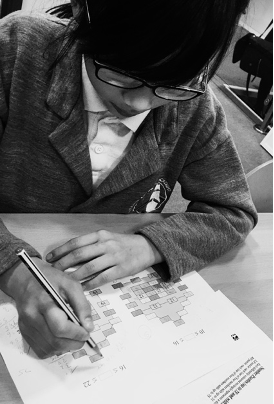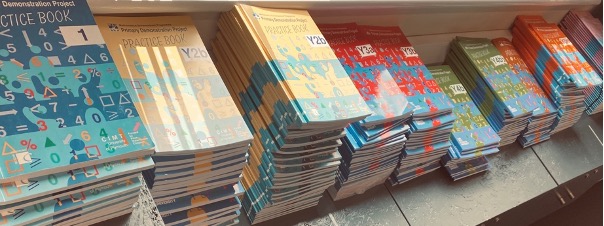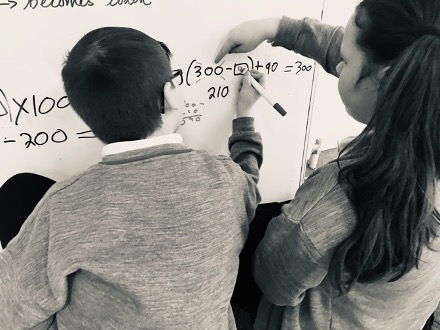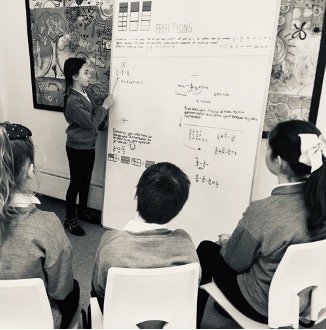MEP Maths
Mathematical Enhancement Programme (MEP) | Ensuring a systematic approach to Mathematics at MCA

Bio
Head of Teaching, Learning and Assessment and Maths Lead: Helen Jennings
“I aim to provide a strong mathematical foundation for all pupils, based on evidence of good practice from mathematically high performing countries.”
Why MEP?
MEP resources have been designed to help implement the key teaching and learning strategies and have been developed from a long-running Hungarian Scheme, masterminded by the late Sandor Hajdu at the Peto Institute, Budapest and adapted for the English curriculum by Professor Tibor Szalontai. We chose MEP because of it’s Spiral Curriculum which ensures continual revision; learning by heart of key facts (including numberbonds and multiplication tables) with progression in small, logical steps.
MEP resources are based on a number of underpinning, concepts, including:
arLogic and Rigor...
Mathematical Progression...
Notation and Layout...
Problem Solving...
Extension Activities...
Real Life Contexts
which underpins the development of all the mathematical concepts
in the key strands: Number, Algebra, Measurement, Geometry, Statistics and Probability
is exact, precise and correct so that the concepts that are covered later are understood
are central to the develop of mathematical thinking
are included in lesson plans to challenge and deepen understanding
are used to support learners to visualise problems and link mathematical concepts to the real world

Expertise
MCA has developed partnerships with Plymouth by Professor David Burghess and Russell Geach (Lecturer in Mathematics Education and Manage (CIMT Plymouth University) and Professor Tibor Szalontai (Hungary).
In 2020 MCA worked in partnership with Plymouth University team, Oliver Caviogli, Dr Namomi San and local MEP schools to design MEP dual coded retrieval cards.
MCA staff work in partnership with Plymouth University and PTSA School Direct students as part of continued professional development.

Professor David Burghess (Plymouth University 2020)
Key Strategies for effective MEP at MCA
Scheme
Trusts and follows the spiral curriculum keeping on track with Monthly Scheme of Work Overview.
Lessons
Well-prepared (clearly defined and informed triad roles (knows the lesson plan well and is aware of any problems/difficulties which might occur), resources are at hand, board prepared in advance, learners have resources on desk.
Seating
Every learner has direct eye contact with teacher and can get to the board and manipulatives quickly and easily. Whole-class interactive teaching predominates, with planned intervals of individual and paired work (mixed attainment). All learners on task and all given the chance to demonstrate, answer, and explain to the class.

4Cs and Positive Learning Behaviour (PLB)
Friendly, non-confrontational atmosphere where learners learn from and support others and have fun! Misconceptions are used as teaching points. Encouragement is given to those who have difficulty and praise given when deserved. Learners are encouraged to appreciate the good work of others.
Visualisation and manipulatives
are used in the early years, relating contexts to learners’ experiences where possible, demonstrating on a number line and modelling to help deepen understanding.
Exercises reviewed interactively
with the whole class at the time. Learners give the solutions, not the teacher, and rest of the class agrees/disagrees or suggests alternative solutions.
Challenges
(inc. PERMS Enhancements), extension work and spaced practice activities are available for learners ensuring no-one is inactive at any point during the lesson. Pupils use elements of ‘Coachee2Coach’ as a model to support peers.
Introductory and Reinforcement tasks
to ensure no child is left behind. Specialist Maths Teachers target group and individual misconceptions.
Correct notation, layout and language
used at all times. Teacher acts as a model for learners to follow (on board and orally).
Good pace and varied activities
related to the concept being taught. Time limits set for individual/paired work. Time allowed for learners to explain and for whole class discussion.
Assessment for Learning Loop
Recognising, Recording, Reporting, Reviewing and Respond is established and used effectively.





